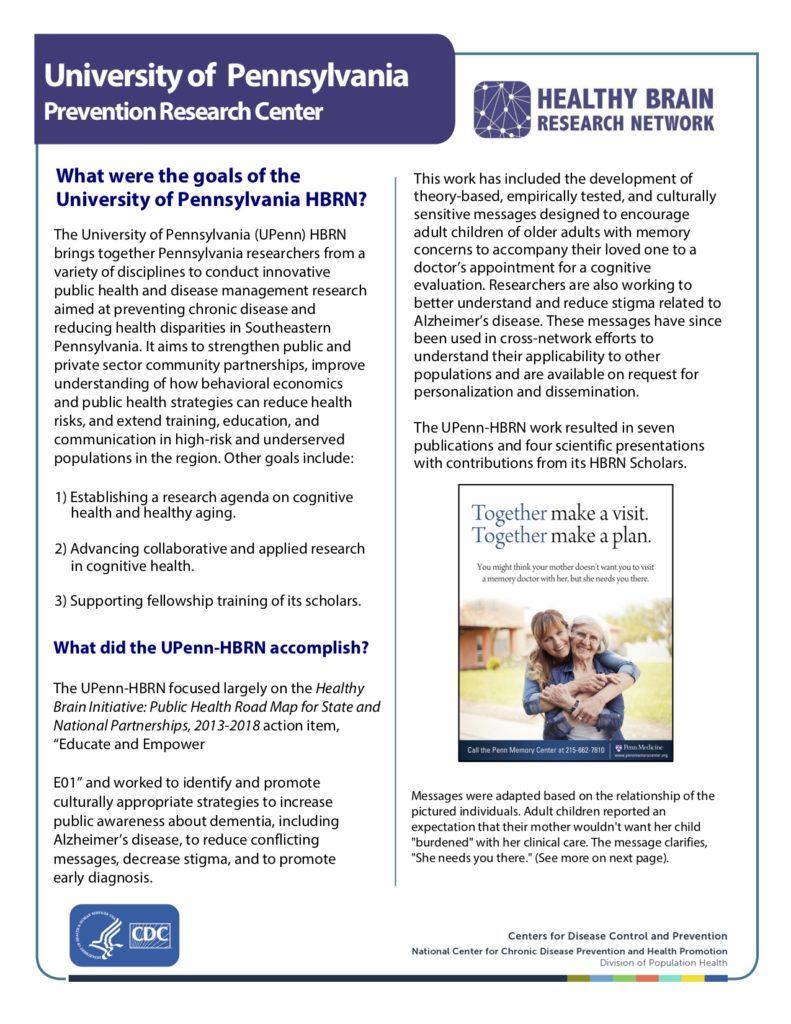By Danny Yarnall
The University of Pennsylvania’s partnership with the Centers for Disease Control and Prevention (CDC) promoted Alzheimer’s education and combatted stigma, according to a recent report published by the CDC. The program completed in 2019.
The reports from the Healthy Brain Research Network, released November 3, are summaries of the completed work of the six academic institutions in the network, including the work done by Penn Memory Center’s Penn Program on Precision Medicine for the Brain (P3MB) team.
The HBRN focused on two growing public health challenges: promoting cognitive health and addressing the needs of older Americans living with cognitive impairment and their caregivers.
P3MB’s work detailed in the report centered around educating and empowering both the public and at-risk populations on benefits and strategies for maintaining cognitive health, understanding the stigma around the disease, developing messaging to reduce it, and supporting the work of HBRN scholars.
Strategies for messaging were included in several ads centered on encouraging adult children of older adults with memory concerns to accompany their loved one to a doctor’s appointment for a cognitive evaluation. The ads were crafted to include empirically-tested attitudes such as an adult child’s desire to “be there” for their father experiencing cognitive issues when he was “there” for them earlier in life.
The P3MB-HBRN work resulted in seven publications and four scientific presentations with contributions from its HBRN Scholars.
The Healthy Brain Research Network was a collaboration academic and research centers across the U.S. with the CDC to promote cognitive health and address the needs of older Americans living with cognitive impairment and their caregivers The HBRN would achieve this through developing interventions through empirical studies, training public health professionals in strategies to promote healthy brain aging, and providing technical assistance to states developing and implementing Alzheimer’s disease and related dementia action plans among other strategies.
Visit the HBRN Website for Penn’s full report and information on the HBRN goals other former HBRN sites.
